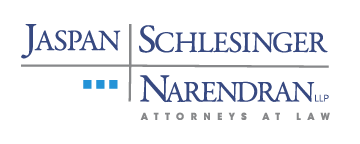As Seen In Long Island Business News.
Abraham Lincoln once gave the following advice, “Discourage litigation. Persuade your neighbors to compromise whenever you can. Point out to them how the nominal winner is often a real loser –in fees, expenses, and waste of time. As a peacemaker the lawyer has a superior opportunity of being a good man. There will still be business enough.”
Civil litigation has never been a perfect means to resolving disputes (although Alexander Hamilton might argue there are worse methods). But many of the innovations introduced into the court system – believed to be improvements to efficiency – have actually made the wheels of justice more cumbersome, more costly and more risky.
For example, legal expenses can quickly skyrocket when electronic records must be produced for use in litigation. Indeed, a whole new and profitable industry has emerged to assist law firms with so-called “e-discovery.”
As staffing and budgets have not kept up with technology, clogged, backlogged court calendars mean sometimes paying an attorney to wait around a long time for a ten-minute conference which merely pushes the matter over to a new date.
And the advent of electronic filing means legal documents are easily accessible to the public and the tabloid press.
There is great financial risk to a company involved in commercial litigation if electronic court papers detail proprietary or sensitive information which competitors and funding sources can seize upon to their advantage, or paint a negative picture which brings about reputational damage.
Consider the loss of dignity when family in-fighting is brought to light during estate litigation. Realize as well that a protracted legal battle over a trust or an estate only serves to diminish the overall value of the holdings once all the bills have been paid.
Marital infidelities and personal finances revealed in court papers can easily become fodder for the tabloids in a high-profile divorce.
Which is why more and more potential litigants are looking at Alternative Dispute Resolution (ADR).
The reality of today’s overburdened court system means that in many instances ADR represents a faster and less costly path to settle legal matters. New York is among many court jurisdictions actively encouraging the use of ADR as a means to reduce their backlogs.
Methods of ADR include mediation, binding or non-binding arbitration, negotiation, advisory opinions and private judging, all by a neutral party – in many instances a retired judge or other former court official. The flexibility of ADR means the parties are not confined to tight court calendars which draw out even the simplest of matters for many months, if not years. Sessions can be scheduled at the parties’ convenience, even after business hours, and spaced far closer together than the typical courtroom structure.
With a shortened time span to resolution, overall legal costs can be greatly reduced, and a business can get back to focusing on business, proceeds of an estate can be distributed, or parting spouses can begin the next chapter of their lives.
Most importantly, all of this resolution occurs privately. Corporate information is not left out for public consumption. Dramatic and emotional courtroom testimony is not required.
We might be light years away from a day when the rush into litigation is not somebody’s first course of action, but ADR is rapidly evolving as a simple, sensible and smart alternative. It is still preferable over a public duel. And what are the chances that your dispute will result in a hit musical?

